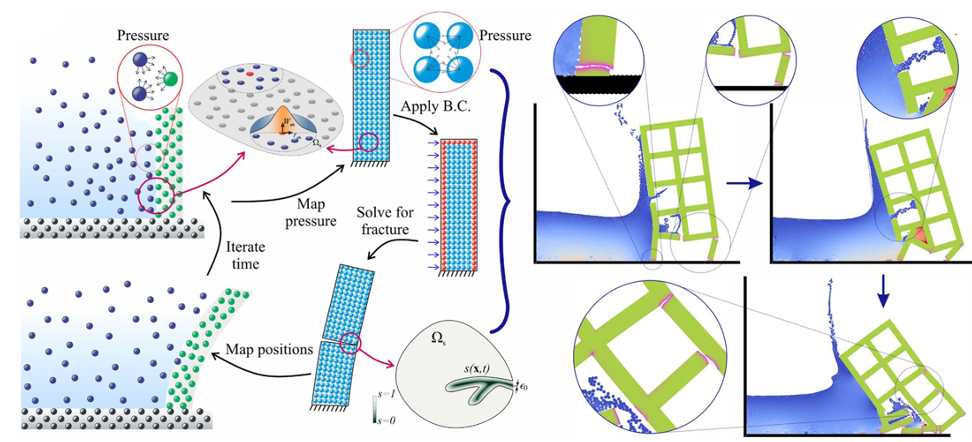Dr. Moutsanidis Receives Prestigious NSF Award for his Research on
Advanced Computational Modeling

The National Science Foundation (NSF) has recognized research excellence in the Department of Civil Engineering at Stony Brook University by awarding assistant professor Georgios Moutsanidis a Faculty Early CAREER Development grant (NSF Award #2338313). The NSF CAREER grant supports early-career faculty who have the potential to serve as academic role models in research and education and to lead advances in the mission of their department or organization.
Dr. Moutsanidis’s CAREER research is to develop advanced computational infrastructure for simulating the effect of extreme hydrodynamic events on coastal structures. Extreme hydrodynamic events, intensified by climate change, pose significant risks to coastal communities, resulting in property damage and human loss. To address this pressing issue, immediate and comprehensive retrofitting of existing coastal structures is necessary, along with a re-evaluation of design procedures for new structures. However, our current scientific toolbox for predicting the behavior of structures under extreme water events and assessing their resilience characteristics falls short.It relies on empirical models lacking a solid theoretical foundation, outdated design codes, and oversimplified numerical frameworks that misbehave in scenarios beyond their limited scope. Through his project, Dr. Moutsanidis will fill this knowledge gap by pioneering the development of novel physics-based numerical methodologies and open-source GPU-accelerated computational software infrastructure for fluid–structure interaction (FSI) simulation between extreme hydrodynamic events and coastal structures at full spatial scale.

The proposed research will advance mathematical methods, algorithms, and computational software pertaining to coastal fluid-structure interaction. It will result in robust and validated procedures for assessing the climate resilience of coastal structures when exposed to extreme hydrodynamic events. Furthermore, the proposed activities will enhance climate change awareness among various stakeholders, including students, researchers, and academics within the computational science community, and the dissemination of the developed numerical methods and software will prove advantageous to researchers and practitioners engaged in the field of coastal climate resilience.
Dr. Moutsanidis joined the Department of Civil Engineering in January 2020. He teaches Steel and Reinforced Concrete Design I (CIV 312), Structural Mechanics (CIV 530), and Intermediate Computational Mechanics (CIV 540). He is also an affiliate faculty of the Institute for Advanced Computational Science (IACS) at Stony Brook. He received his PhD in structural engineering and computational science from the University of California, San Diego.
